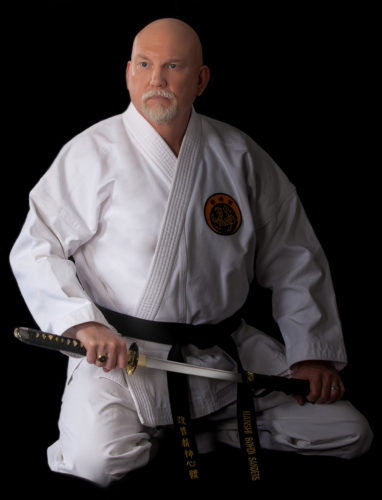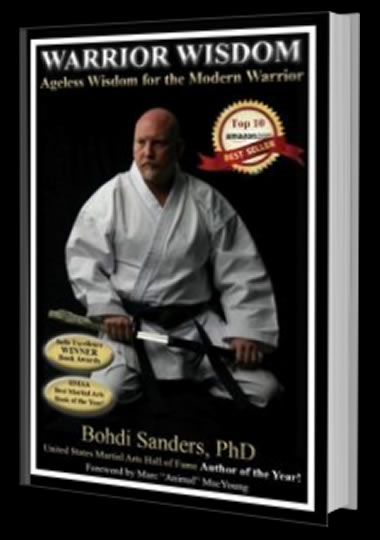THE WARRIOR LIFESTYLE
What is the warrior lifestyle? The true warrior is a rare person in today’s world. He lives life with a different set of values compared with the rest of society. Even those who do share the same values, rarely live a lifestyle which adheres to those values to the extent that the warrior does. To most people, ethics are situational. They make decisions according to what is best for them, instead of what is right. This is not the case with the warrior. The warrior values honor, integrity, justice, and his sense of what is right, above all else. His ethics are not situational; they are his way of life.
The warrior lifestyle revolves around a code of ethics which is non-negotiable. The warrior’s code of ethics, or code of honor, is taken very seriously. To the warrior, distinguishing between right and wrong is of the utmost importance. He sees right and wrong in terms of black and white. He knows that an action is either honorable or dishonorable. This is not meant to imply that honor is black and white; honor is not that simple.
Those who live the lifestyle of the warrior know that whether or not an action is honorable, is determined by both one’s intentions and the situation at hand. This is not to be confused with situational ethics. The warrior’s ethics do not change according to the situation. His actions will change as needed, but his ethics remain set in stone. There is a big difference between ethics and actions. Ethics determine actions; actions do not determine ethics.
The warrior lifestyle is concerned with what is right and what is honorable. A warrior’s ethics revolve around these two issues. Justice and honor are foremost on his mind. His thoughts are centered on “what is right,” not on other people’s opinions of what is right. He realizes that many people profess a belief in absolutes which they neither live by, nor truly believe in, when push comes to shove.
The only absolute that the warrior lives by is that of what is right and wrong. If it is not right, he doesn’t do it. He determines what is right and wrong by his strict code of ethics, not some arbitrary laws or the politically correct standards of the day. The warrior doesn’t appear to be honorable; he is honorable. Sincerity is ingrained in this lifestyle. This is a lifestyle that is meant to be lived, not fantasized about or merely discussed.
This lifestyle consist of much more than being trained in the art of war or the art of self-defense, although these are an important part of the life of the warrior. It also consists of the challenge to perfect one’s character. This is a process much like the Japanese concept of kaizen. Kaizen can be translated as constant, never-ending improvement. True warriors try to apply this concept to every area of their life. They seek to balance and improve each area – spirit, mind and body, on a daily basis.
Each area of your life is important and should be kept in balance. Training men in the art of war or in the art of martial arts, without regard to character, only produces a dangerous man; it does not produce a warrior. In years past, the martial arts masters would not train someone fully until they felt assured of that person’s character. Today most schools will train anyone who can pay, regardless of their character or lack of character. This is dangerous information to give to just any and everyone who comes along. In my opinion, character should be a prerequisite, not only for martial arts training, but for many of the privileges which we enjoy in this country.
I am asked often whether or not I believe that the term “warrior” should apply only to military men and women who have been in war or to trained and experienced fighters. Although I realize this is the literal definition of a warrior, I do not believe that this is the correct definition, not according to the many accounts from past warriors anyway. This literal definition of a warrior is not the definition that is used for our discussion of the warrior lifestyle in Warrior Wisdom . An ape can be trained to throw punches and kick, a dog can be trained to fight, but that doesn’t make either of them warriors. Being a warrior involves more than being trained to fight or being in the military; it involves character training as well. Character training is the true goal of Bushido, the way of the warrior.
Please don’t misunderstand me; I have great respect for our military men and women. But I believe that anyone who has ever served in the military will agree that not every soldier lives by the character traits which are necessary for the warrior lifestyle, anymore than every martial artist or every person in general lives by these standards. I’m not taking anything away from those who serve our country. Every person who serves our country deserves our respect and gratitude, but service doesn’t necessarily indicate that a person is concerned with perfecting his or her character. It is rare to find people who take their ethics seriously today. It is common to find people who claim to take their ethics seriously, but I am referring to people who walk to the walk, not just “talk the talk.”
Yes, the warrior is concerned with physical training and the martial arts, but he also knows that character training is the cornerstone of the warrior lifestyle. The true warrior should be trained in martial arts. His ethics require that he be ready to defend his family, friends, or himself in certain situations. In today’s world, you never know when you may have to use your martial arts skills. It is essential that you have this training to be as self-reliant and as safe as possible, but without a code of ethics, which is based on a deep understanding of right and wrong, there is no warrior; there is only someone trained to fight. There is a difference. Without the character traits of honor, integrity and justice, there is no warrior lifestyle.
In short, the warrior lifestyle is for anyone who want to live a life of excellence; a life which adheres to a strict code of ethics. You must be willing to live your life based on honor, preparedness and what is right. This lifestyle requires that you put your ethics before your comfort, and that you put what is right before what is profitable. It requires filial duty, dedication to family and friends, and a willingness to help those in need. It requires independence in thought and action. This lifestyle is a decision, not a profession.
This is just a brief introduction to the lifestyle of the warrior. Each of these points can be greatly expanded and I understand that not everyone will agree with my assessment. Even if you disagree with my definition of a warrior or the characteristics of the warrior lifestyle, you will still find the wisdom in this book to be very useful. Warrior Wisdom seeks to provide the reader with wisdom from throughout the ages that will help him live the warrior lifestyle. This lifestyle is not a goal to be achieved, but rather a road to be traveled. May you travel this road with honor.

